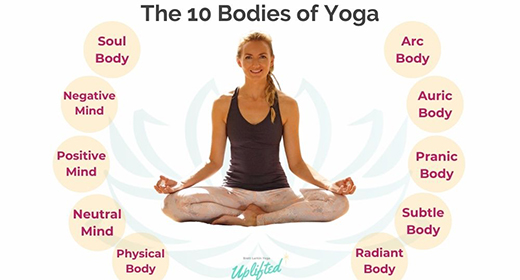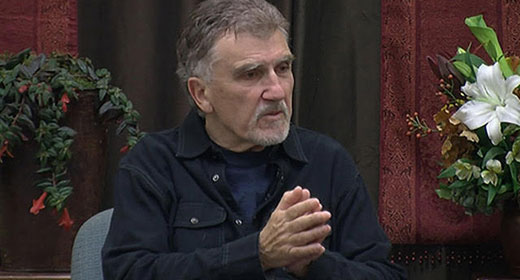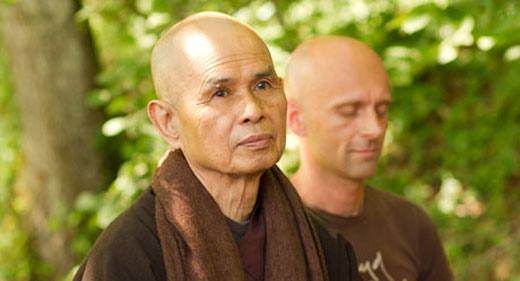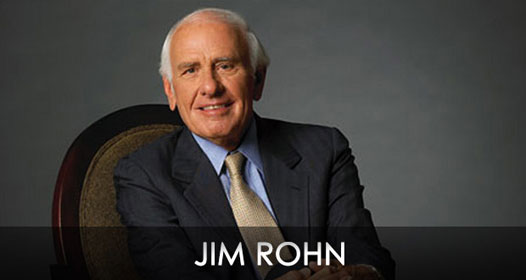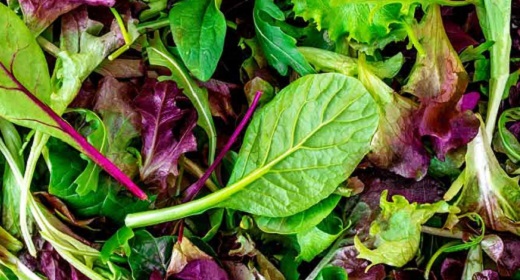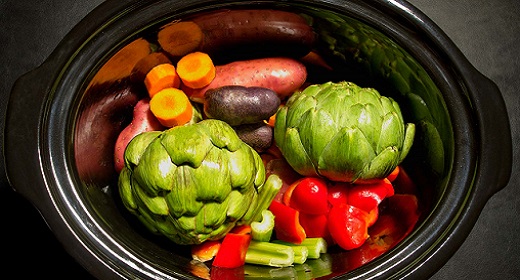by Carol Kuruvilla: When we’re busy at work, it’s easy to quickly scarf down a meal at your desk or skip a healthy lunch altogether…
But what does this kind of eating do to our souls and the environment?
In his short book How To Eat, Buddhist spiritual leader Thich Nhat Hanh argues that it’s important to eat mindfully — to be aware of what we’re eating and how we’re eating it. Not only can this improve our own health, but Hanh suggests that mindful eating will also help us become better caretakers of the Earth.
“When we can slow down and really enjoy our food, our life takes on a much deeper quality,” Hanh writes. “When I eat in this way, not only am I physically nourished, I am also spiritually nourished.”
Here is how Hahn recommends practicing mindfulness during each part of a meal.
-
Serving Food

-
The meal doesn’t begin when we start eating — it begins as soon as we sit down at the table. Whether we’re serving the food or waiting to be served, we can use this time to prepare our soul for the nourishment ahead. It is a time to feel joy and gratitude.
“We don’t need to feel like we’re waiting for other people to serve themselves and be seated,” Hanh writes. “All we have to do is breathe and enjoy sitting.”
“As you wait to serve yourself or be served, look at the food and smile to it,” he adds. “It contains sunshine, clouds, the sky, the Earth, the farmer, everything.”
-
Looking At Our Plate

-
Most of us don’t take the time to even glance at our plate before digging in. Take a moment to do so. Remember that thousands around the world don’t have the pleasure of looking a full plate of food.
Breathe in and out three times before reciting the verse above, which is rooted in a Vietnamese folk song.
“Doing so will help us maintaing mindfulness,” Hanh writes. “May we find ways to live more simply in order to have more time and energy to change the system of injustice that exists in the world.”
-
Beginning To Eat
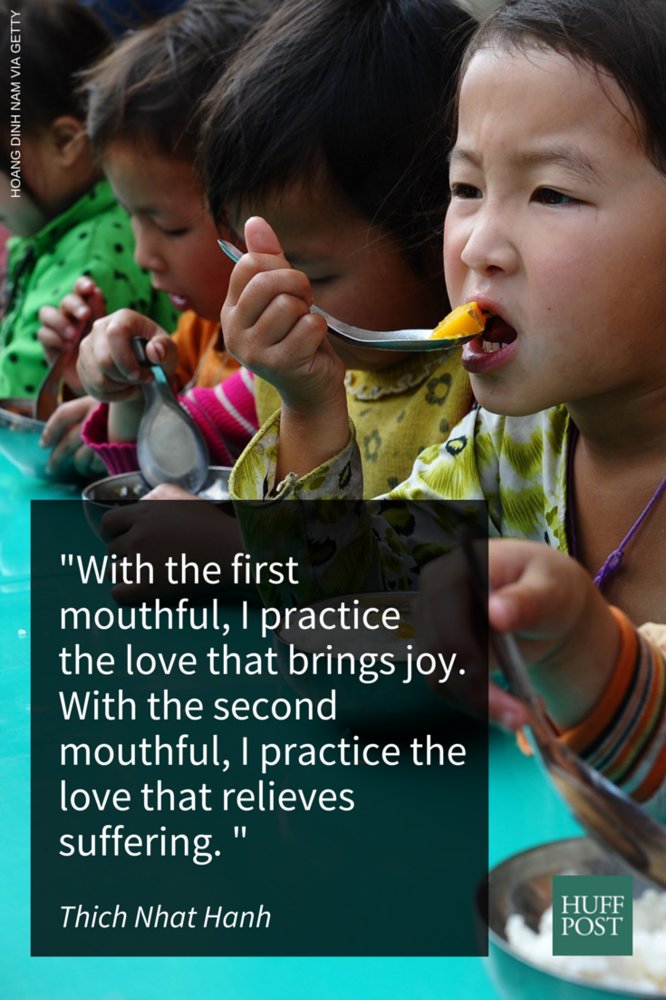
-
Hanh asks us to pay attention to the first four bites of our meal. During the first mouthful, we can promise to bring at least one person a bit of joy. During the second, we can promise to relieve one person’s pain. The third mouthful should remind us be full of wonder at life. And the fourth can remind us to be inclusive in our love.
“After this, we get in touch with the food and its deep nature,” Hanh writes.
-
Looking At Our Empty Bowl
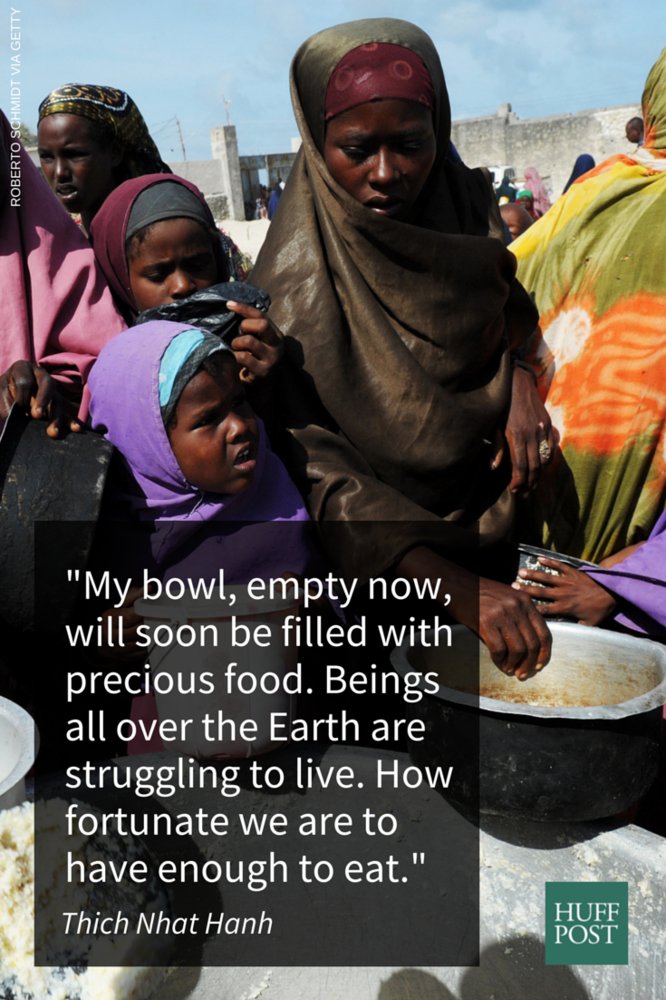
-
Hanh tells us that it is just as important to honor the empty bowl as it was to honor the full bowl.
“When many people on this Earth look at an empty bowl, they know their bowl will continue to be empty for a long time,” he writes.
-
Finishing Our Meal
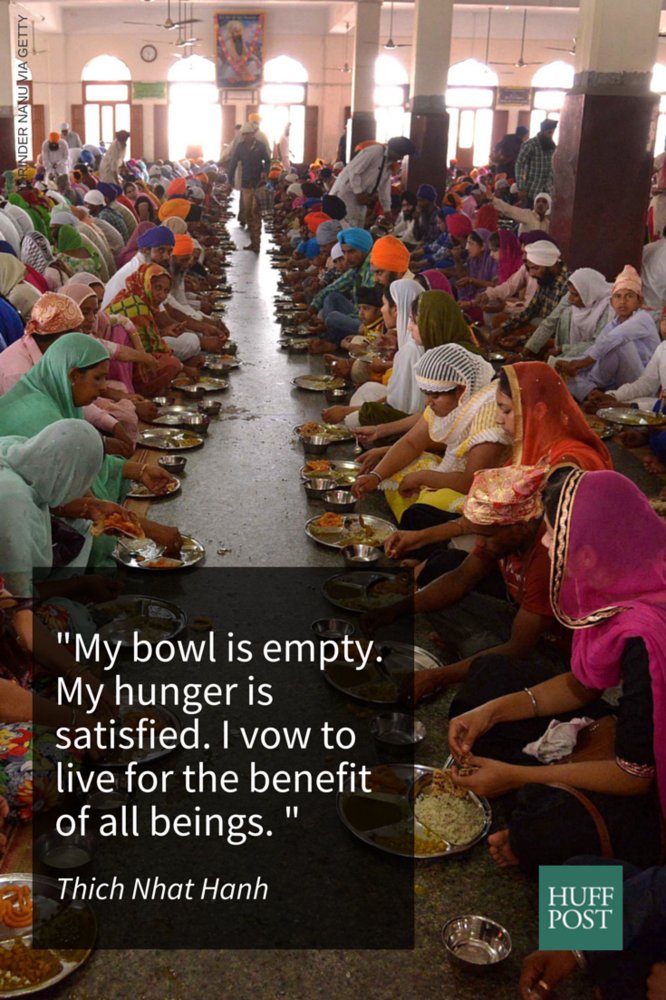
-
Rather than rushing to the next task after eating, Hanh says we should spend some time thinking about what we’ve eaten and everything that came together to create this moment of satisfaction — from the the seeds that were planted in the ground in a country far away, to the vegetables that our body turns into energy.
“We are as grateful for having eaten and for feeling satisfied as we are in the moments of contemplation before we eat,” Hanh writes.
-
Holding Our Cup Of Tea
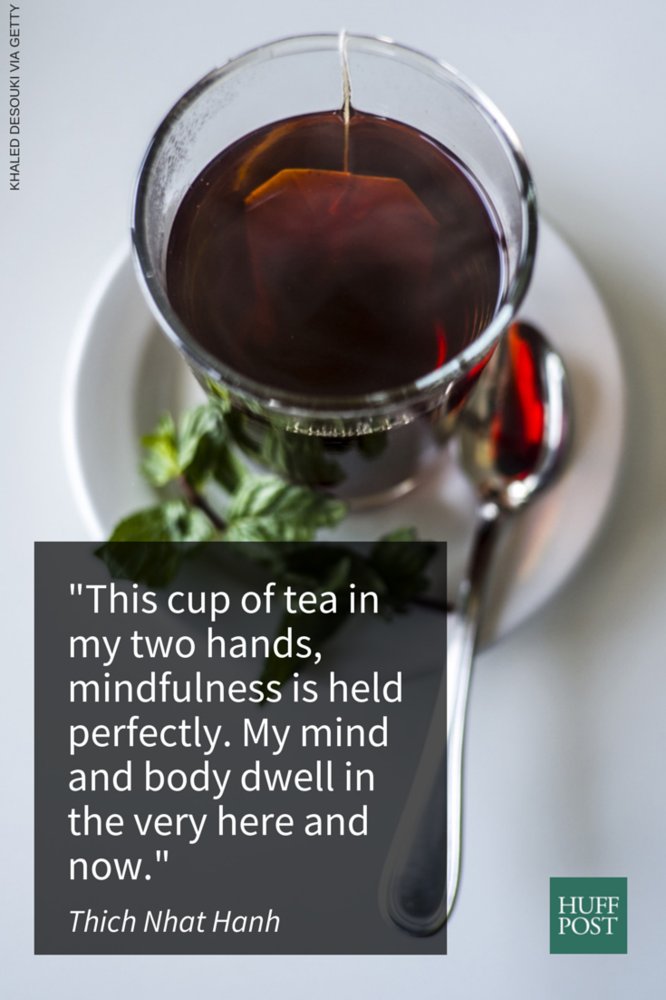
-
The meal is over and we now have the chance to drink in the rain. Hold a cup of tea close and breathe in while thinking about the first line of this verse. Breathe out while reading the second sentence.
“If we’re not mindful, it’s not the tea that we’re drinking but our own illusions and afflictions,” Hanh writes. “If the tea becomes real, we become real.”
-
Washing The Dishes
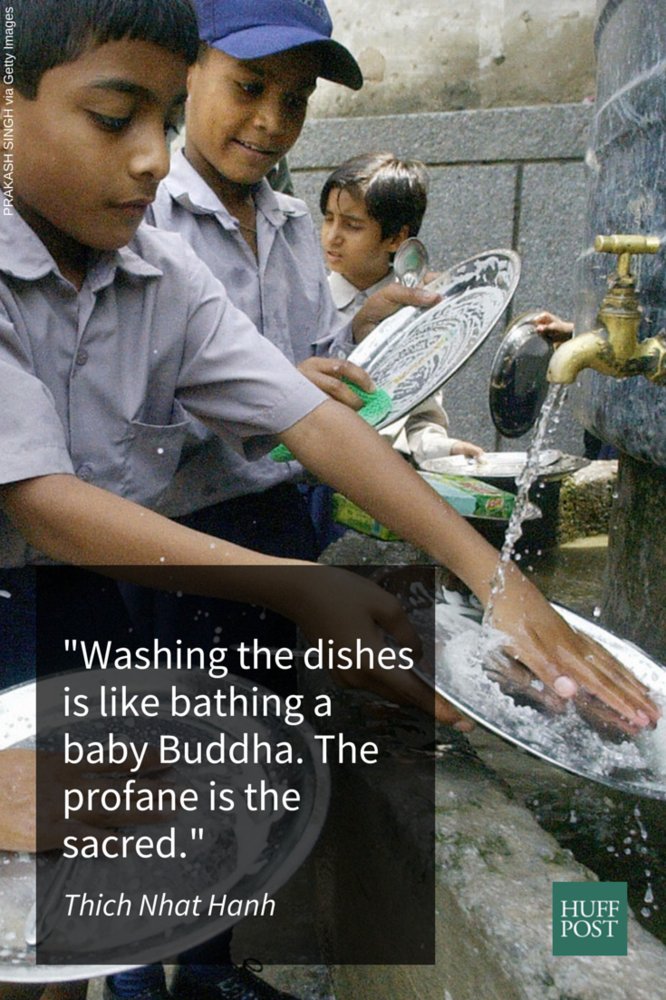
-
Hanh believes this portion of the meal is so important that he calls it “bathing a baby.”
When we get in the habit of washing dishes quickly just to finish a chore, we don’t live in the present moment. Instead, we drag ourselves into the future and lose the joyfulness of the meal.
“Washing in this way, joy and peace can radiate within and around you,” Hanh writes.
-
Composting Our Food Scraps
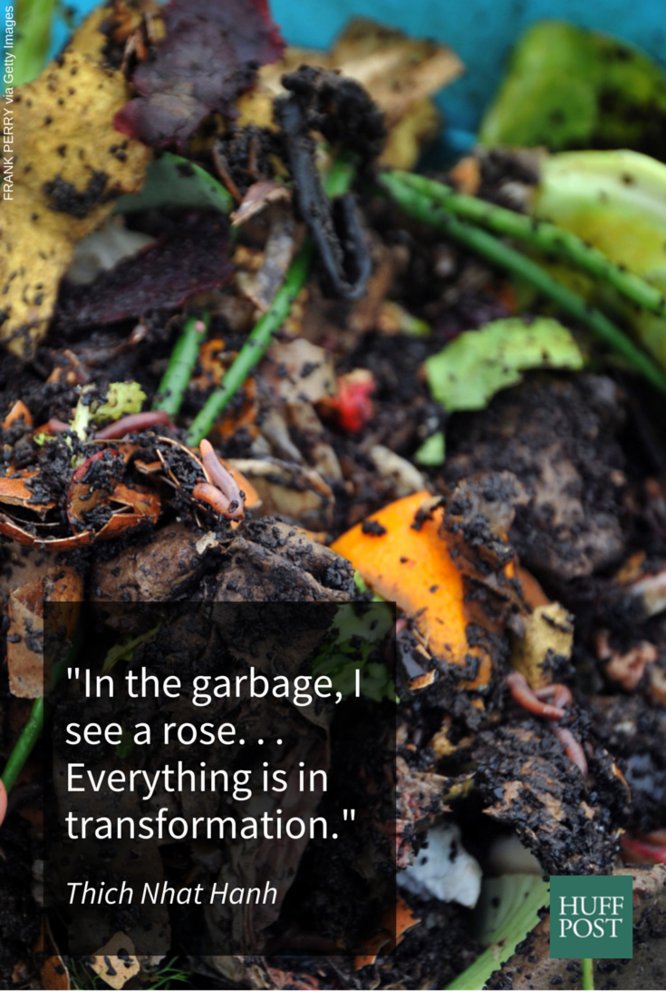
-
Compost can be smelly at first, but it also holds the promise of new life. It’s important to make sure the waste from a meal has a chance at a new beginning.
“The fragrant rose and the stinking garbage are two sides of the same existence,” Hanh writes. “Without one, the other cannot be.”
-
Understanding The Bigger Picture

-
When we practice mindfulness during meals, we become more aware of what we should and shouldn’t eat to keep our bodies, minds and planet healthy.
“Mindful consumption is the way out of our difficulties, not just our personal difficulties, but also the way out of war, poverty, and climate crisis,” Hanh writes.




